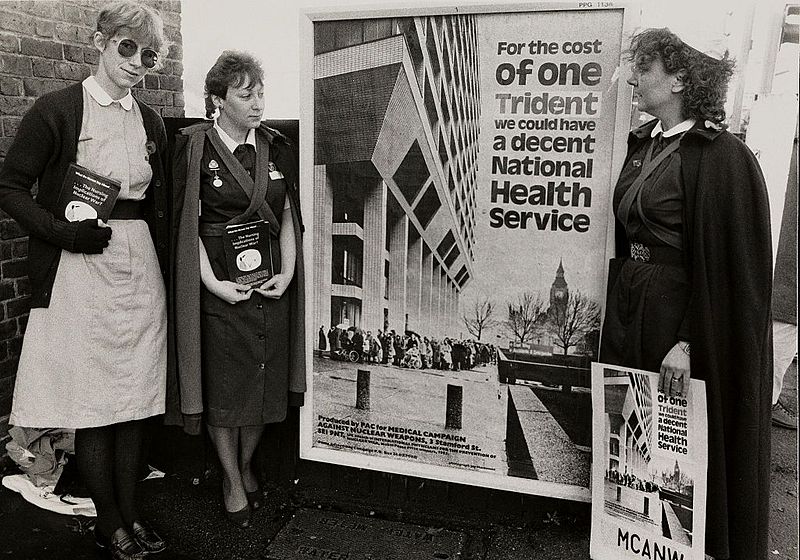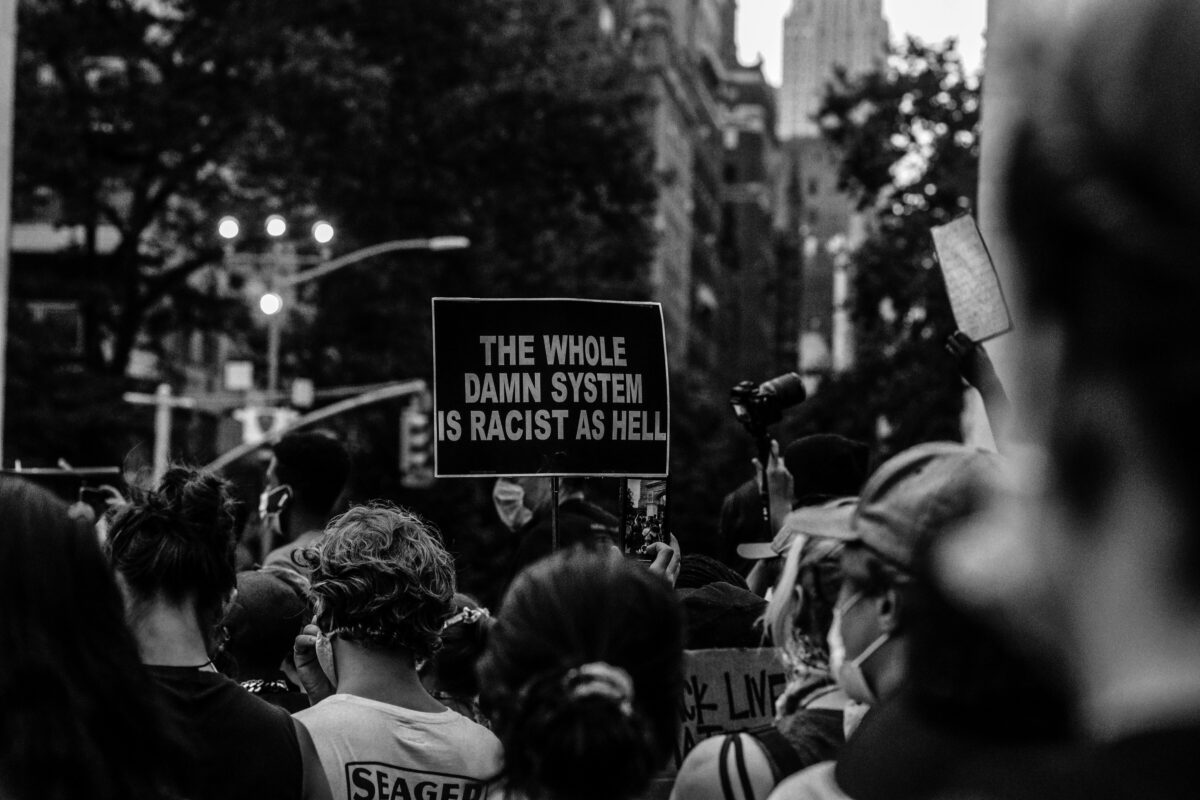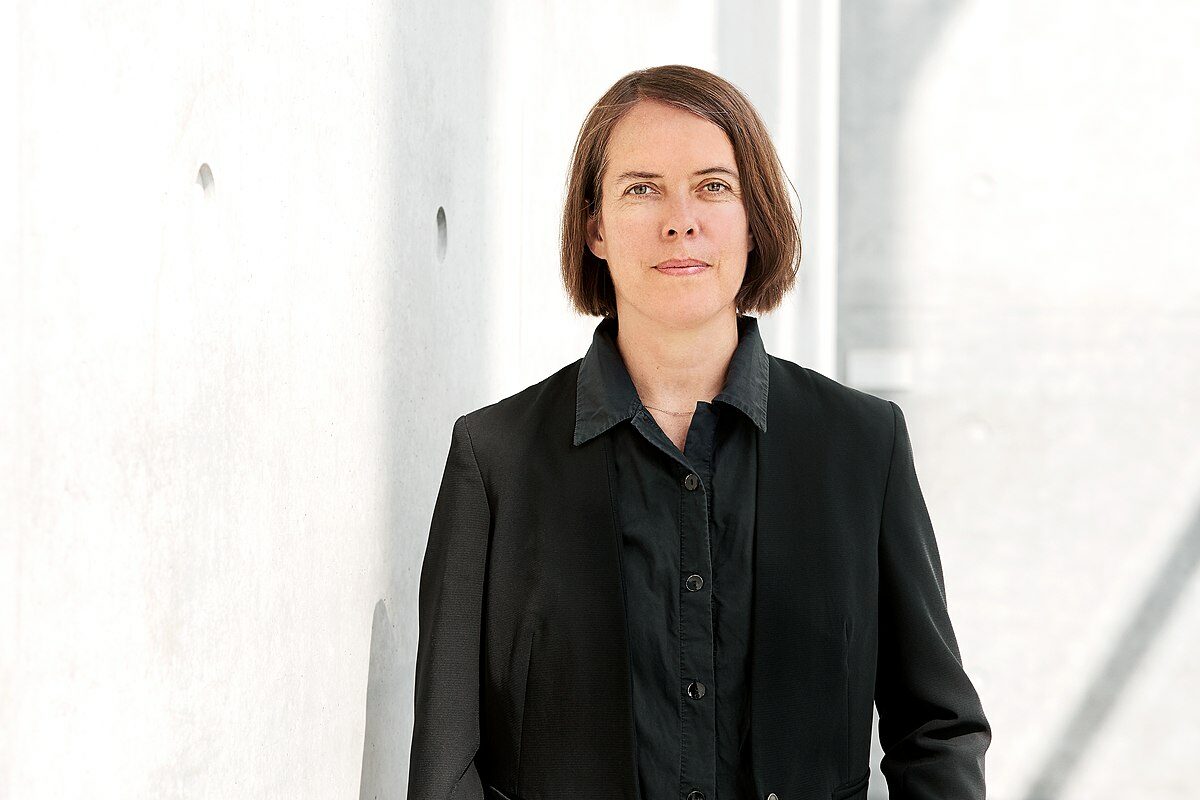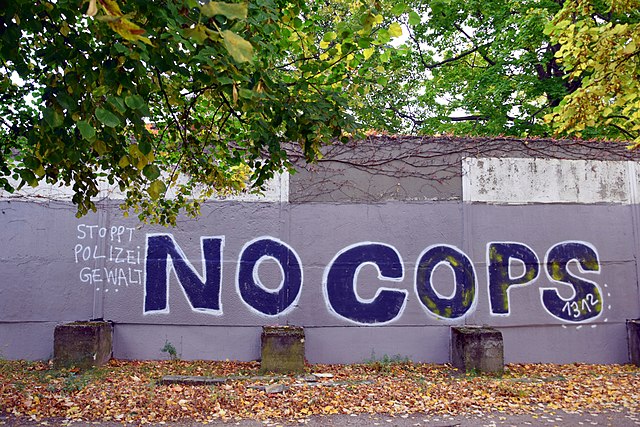It is common for the NHS to be attacked on a spurious grounds, negative statements often repeated uncritically and ad nauseam by some sections of the media until they become ‘common knowledge’. This article considers some such statements and suggests counter arguments that may be useful to campaigners, particularly in the run up to the election when the NHS will figure among the most important concerns of the electorate.
“If the NHS is so good, why has no one else copied it?”
This question implies that the NHS is outdated and that a social insurance model or other form of funding would lead to better outcomes. Nigel Edwards of the Nuffield Trust pointed out that if we look at countries that have health systems funded largely out of tax, that are mostly free, comprehensive and have a provider sector that is substantially publicly owned (i.e. like the NHS), there are actually quite a few. Scandinavian countries have systems where the majority of the revenue is collected by tax and providers are owned by local government. The current Portuguese Health Care System was created in 1979 and based on the Bevanite National Health Service model; Italy, Spain and Malta also have health systems in many ways similar to the NHS.
Of course, these countries do not replicate our NHS model in every detail but nevertheless have much in common with it, including now being the objects of ideological attack, and undermining of their public aspects through the growth of financialization and the promotion of the unfounded view that privatisation brings efficiency. On the contrary, recent evidence from England suggests that outsourcing clinical services is associated with increased mortality. Where profit hungry private equity firms have taken over hospitals in the US, there has been a 25% increase in complication rate (principally infections) observed among patients. The deficiencies of some social insurance based European and other high income country systems have been outlined by John Lister and include higher overall administration costs and transfer of cost of care to individuals, often disproportionately affecting those on lower incomes.
Enthusiastic introduction of market reforms in the New Zealand health service in 1993 is acknowledged to have led to neglect of both workforce and planning, and resulted in fiscal irresponsibility and excessive transaction costs. The legislation through which these reforms were imposed was eventually abolished while new laws re-established a National Health Service (first founded in 1938 and providing care ‘from cradle to grave’). Following this, through cooperation rather than in competition, patient care improved and demand on hospitals reduced. In a recent review providing an international perspective, the benefits of public versus private health care were noted to include that the former reduced overall healthcare and administrative costs, helped in standardising services and creating a healthier workforce, prevented future costs, and guided the population to make better choices.
“We have given the NHS record funding”—so everything is alright
The NHS may indeed be reciepient to ‘record funding’—but this does not mean it is getting what it needs. More or less everyone (except those with overall responsibility for the service it seems) can see that the NHS is in crisis. The government consistently attempts to counter criticism of its appalling record with the claim it is providing record funding. This is, of course, a meaningless statement unless it is placed in the context of historical funding, current demand and is benchmarked against comparable countries. As Mark Thomas of the 99% Organisation pointed out, if his salary had increased £50 each year since starting work he would now have a record salary but would be living in poverty.
‘Record funding’ has in fact not taken into account increased demand from population growth over the last 13 years, an aging population and increases in those with chronic conditions such as diabetes together with a surge in the need for mental health care. After the creation of the NHS in 1948, spending increased every year by around 4% in order to help meet increasing demand. From 2010, growth in spending fell below this long-term average, meaning that by 2022 there was a £322 bn shortfall between what was actually provided and what would have been provided if historical increases had been maintained.
Health spending is often looked at as percentage of gross domestic product (GDP; this varies as the strength of the economy fluctuates) but more informatively, as per capita funding. The Financial Times published data shared from the Health Foundation examining health spending in the UK and Europe in the decade before Covid. Average day-to-day health spending in the UK between 2010 and 2019 was £3,005 per person – 18% below the EU14 average of £3,655. Matching spending per head to France or Germany would have meant an additional £40bn and £73bn (21% to 39% increase respectively) of total health spending each year in the UK. Similarly, analysis of Britain’s capital health spending on buildings, technology and equipment between 2010 and 2019 showed that an extra £33bn (a 55% increase) in cumulative UK investment would have been needed to match the EU14 average invested over the period.
John Burn-Murdoch is the Chief Data Reporter for the Financial Times and has engineered beautiful graphs illustrating how the so called ‘record funding’ of the Conservative government has caused immense damage. Among other things, the graphs demonstrate how waiting lists swelled under Major, shrunk under Labour as funding increased, then climbed again under Tory austerity. While avoidable deaths had been falling steadily, this plateaued under austerity and is now on the rise; improvement in life expectancy has also stalled. Austerity produced a fall in total government spending, together with falls in spending on health care as % of GDP, public sector investment, and investment in health care. Burn-Murdoch also shows how the current crisis in the NHS damages productivity and relates among other things to no longer having enough beds.
The reality that ‘record funding’ actually amounts to nothing more than considerable underinvestment is set out in a report by the 99% Organisation. While nominal spend has continued to rise over the past two decades, when taking into account inflation, population growth, aging and increasing burden of disease – real spend per unit healthcare demand clearly shows a steady decline over the past 13 years. Among the G10 countries, only Italy spends a lower proportion of its GDP on health than the UK. The bottom line, therefore, is that we spend less on healthcare than other developed countries; our spending has not kept pace with the combination of inflation, population growth, population aging and increase in chronic illness.
This underfunding (aka ‘record spending’) has led to the unavailability of resources (staff, hospital beds, technology, etc) and so to poorer performance. It is a lack of staff and resources that are damaging cancer survival rates in the UK. As the Organization for Economic Cooperation and Development put it: “The United Kingdom’s health system delivers good health outcomes relative to the level of health expenditure…..”, and as Anita Charlesworth, Director of Research for the Health Foundation observed, there is a simple choice to be made: “Either we are going to have lower quality healthcare relative to other countries or we spend more”. With 2.6 million now unable to work because of sickness, it is clear that an effective health service is necessary for a healthy economy, which in turn is required to tackle the social inequality that drives long term ill health. If the NHS fails, the economy fails with it.
“The NHS is unproductive and wastes money”
In responding to this point, there is an instructive analogy from the 99% Organisation report: ‘the UK government has been continually asking the NHS to do more with less. It has been acting like the experimental philosopher (described by Dickens) entrusted with the care of a champion race-horse, and attempting to show that it can live without eating. Now that the horse can no longer run, it blames the horse, not the diet!’. Similarly, politicians persist in calling for a stricter diet, rejecting the ‘magic money tree’ but enthusiastically embracing the ‘magic efficiency tree’.
Rather than examining the evidence and drawing the conclusion that lack of investment is damaging productivity, some commentators choose to point the finger at staff for being profligate with resources—a surprising many outside the healthcare field seem to be experts on wasteful practices in the NHS! It is much easier to blame managers and staff for perceived shortcomings, and to cite reports that have often come from clinicians themselves, who in the course of their work are forced to consider both waste and best use of limited funds. Standardising investigation processes and management of patients can save money and is very much central to what staff are doing on a day-to-day basis as part of their work as professionals. This is why, for example, the NHS no longer endorses use of homeopathy and why we have an advisory body like the National Institute for Health and Care Excellence.
Claims such as, ‘the NHS wastes £2bn a year on unnecessary treatment and investigation’ therefore requires careful scrutiny. Unfortunately, much of medical practice rests on relatively shaky scientific foundations, continually raising legitimate questions (that are far from simple to answer) about the allocation of available resources. Theoretical savings through withholding treatments or tests are not always easy to realise in practice (e.g. reducing numbers of X-rays), and even when justified, may be persuasively challenged or require investment elsewhere (such as community pharmacists to reduce medication usage). What seems beyond doubt is that in a privatised rather than public healthcare system, the dominating profit motive is much more likely to contribute to expenditure through over investigation and treatment. This is one of the reasons we see staggeringly high costs in the US health care system.
Another common criticism regarding ‘waste’ is that the NHS has ‘too many managers—get rid of these and use the salaries for patient care’. Any large and complex organisation needs managers. While 10% of people in the overall economy are categorised as managers, it is only 4% in the NHS. A strong case has been made that the NHS is undermanaged. The reliance on expensive external consultants also suggests the NHS does not have enough managers of its own. Whereas current lack of productivity is both a reflection of the whole system and a consequence of underfunding, we can see that with investment, NHS productivity rose 16.5% from 2004/5 – 2016/17 compared to growth of only 6.7% in the economy as a whole. In 2017, Office for National Statistics data showed NHS productivity in England grew by 3% versus only 0.8% in the wider economy.
Of course, there is always some spending excess to be found in large enterprises and this should be addressed. One area ripe for cuts is administration for the expensive, artificial ‘marketplace’ created by successive governments to allow both NHS and private ‘providers to compete with each other to offer services to NHS and other ‘purchasers’. In 2010 the Commons health select committee estimated that the ‘purchaser-provider split’ had pushed up costs of management and administration from 5% to 14% of total budget (£15.4bn/year). The current figure is unknown but with estimates falling between £4.5bn and £30bn. Although such savings are speculative, the cost of developing, awarding and monitoring contracts with private providers represents one area of wastefulness that receives very little attention from the ‘experts’.
Benchmarking the NHS
Though never perfect, we know the NHS has worked well in the past, not least from the evidence presented in detailed international comparisons. The Commonwealth Fund (based in the US) is a highly regarded source of independent research into different healthcare systems. For nearly 20 years, it has been compiling reports on eleven high income countries. These are based on international surveys carried out in each country and on administrative data from both the Organisation for Economic Cooperation and Development and the World Health Organisation. Other sources of benchmarking information include EUROSTAT, and the Rand Corporation, but these are less comprehensive.
The reports examine 71 measures of performance, grouped into five domains: access, care process, administrative efficiency, equity, and healthcare outcomes. Until 2017 the NHS was overall top performer, but by 2021 had slipped to fourth because of difficulty accessing care and treatment. This was the first time since 2004 that the NHS had not been ranked in the top three. Ideological critics respond to these very compelling endorsements of the NHS model with what they imagine to be a devastating argument by pointing out that the NHS is placed 10th out of 11 (the US being an outlier and very much bottom of the pack) for outcomes. However, a glance at the data (Exhibit 8 in the report for 2021) shows that the NHS is very close to New Zealand, Canada and Germany for outcomes. Top performing countries were characterised by investment in primary care and social services – both currently in a state of disarray in the UK.
Conclusions
The NHS is neither a shrine nor a religion as its right wing detractors sneeringly like to state. In truth, the fundamental business model of the NHS is better than those in the other high income countries with which it is compared. The founding model of the NHS is a winning formula and should not be changed unless there is overwhelming evidence for a better one. Those who advocate for major reform must, like the Commonwealth Fund, set out clearly just what they are proposing: the costs involved together with the expected effect on access, care process, administrative efficiency, equity, and healthcare outcomes.
Health and care must be acknowledged as tangible benefits fundamental to human wellbeing and a productive economy, maximising the ability of people to participate in society, and not seen only as a cost to be begrudgingly accepted. If the NHS was now properly funded it could deliver outcomes that excel even the current best. Most people from across regions, demographic lines and party political allegiances support a universal, comprehensive, free and tax-funded healthcare system. The NHS model has not failed, rather it has been failed by politicians. This election year is the time to set things right and campaign for a People’s NHS.



